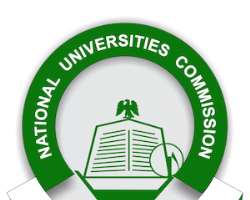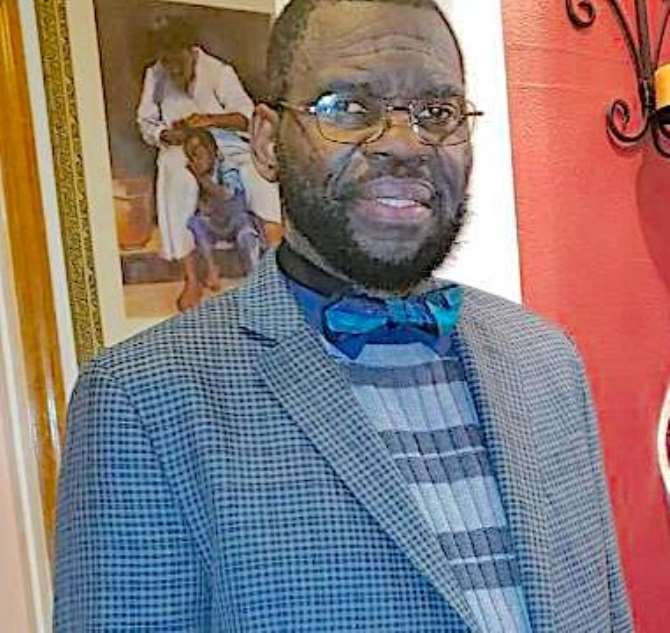Digital Transformation of Educational Institutions Is Not N. U. C’s Job But Individual Schools

Let me start with the COVID-19 pandemic which came as an unexpected experience for students and teachers globally. In Africa, Nigeria especially, given its status as the most populous nation in Africa found most of its pupils and students across private and public universities grounded at home, living in idleness, and apparently enjoying that water-soaked granular flour called Garri, mixed with groundnut.
All because the nation and its educational authorities have chronically been against online system of education. The only exception may be the National Open University of Nigeria (NOUN) which has long embraced and used online, and web based educational systems.
In a hurried manner, a very few numbers of private schools and universities took to online mode of learning, but with hardship, marked with high cost to students and families as it was not a routine approach to leaning, as done in online and digitally friendly societies.
In many online friendly nations in Asia, Europe, America and the Caribbean islands, schools and universities were already used to engaging in online learning.
As the pandemic got worse, they simply returned to virtual learning or continued with hybrid learning — with some days of virtual schooling alternated with in-person class days, then to asking all students to remain at home, switching fully to virtual model throughout the year 2020 and till right now.
Nigeria is known for constant school closures due to lecturers strikes resulting in an unhealthy school calendar and delay of students’ progress and school completion. Let’s quickly add that in Nigeria private schools like the Godfrey Okoye University in the south-east and Bells University of Technology in the south-west of Nigeria have to some degree distinguished themselves in online education.
There is another reason for African nations to buy into online education. Whether physical schools are closed due to emergency crisis like the pandemic or due to industrial strike, students can enroll in what is known as massive open online courses, or MOOCs, such as Coursera, Udacity, edX, Udemy, and others, and gain free learning, and even certificates from renowned universities offering courses through these online platforms.
Nigeria as other African countries must in a significant and expansive way move beyond the 19th and 20th century brick-and-mortar school type thinking and move into to a virtual school thinking approach. Nigerian universities and schools especially the forward thing ones must disconnect their thinking from government bureaucracies like National Universities Commission (N.U.C) and seek ways to become part of transformational education.
The Governments and corporate entities in Africa must seek ways to drastically reduce challenges like the chronic erratic electricity supply, and deficient technical infrastructures that make phone lines and internet connections defective or sluggish due to narrow bandwidth.
There are so many unprecedented benefits with online education as it allows students to attend classes from any location of their choice. Online learning offers digitally trained teachers an efficient way to deliver lessons to students and it is far more affordable as compared to physical learning.
In a nutshell, online learning arrangements which include learning management systems (LMS), and virtual conferencing systems are not only providing learning continuity in any situation, but online education is also specifically geared toward improving student skills for success in the workforce, and it stands out as a productive way to higher, technical and vocational education as well as adding to the growth of democracy.
John Egbeazien Oshodi, is an American based Police/Prison Scientist and Forensic/Clinical/Legal Psychologist. A government Consultant on matters of forensic-clinical adult/child psychological services in the USA; Chief Educator and Clinician at the Transatlantic Enrichment and Refresher Institute, an Online Lifelong Center for Personal, Professional and Career Development. The Founder of the Dr. John Egbeazien Oshodi Foundation, Center for Psychological Health and Behavioral Change in African settings, as such l. In 2011, he introduced the State-of-the-Art Forensic Psychology into Nigeria through N.U.C and the Nasarawa State University where he served in the Department of Psychology as an Associate Professor. The Development Professor and International Liaison Consultant at the African University of Benin, and a Virtual Faculty at the ISCOM University, Benin of Republic. Founder of the Proposed Transatlantic Egbeazien University (TEU) of Values and Ethics, a digital project of Truth, Ethics, Openness. Author of over 40 academic publications/creations, at least 200 public opinion writeups on African issues, and various books.
Prof. Oshodi was born in Uromi, Edo State, Nigeria to parents with almost 40 years of police/corrections service, respectively. Periodically visits home for scholastic and humanitarian works. [email protected]

